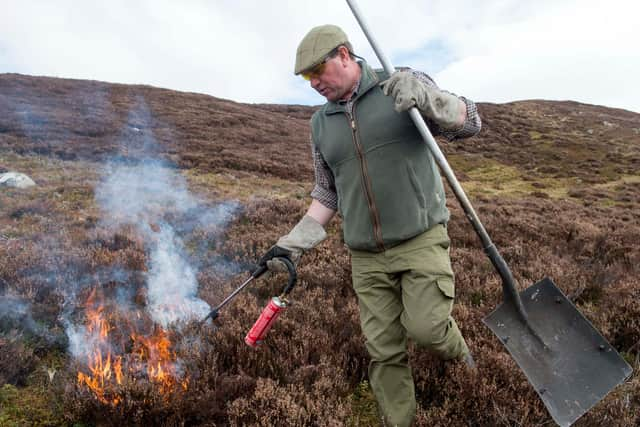Controlled burning vital in fight against wildfires
With the United Kingdom recently recording its hottest ever temperatures, wildfires wreaked havoc for fire crews in both rural and urban areas, with 440 wildfires reported across the UK.
Scottish Land & Estates, which represents land managers and rural businesses, said now was the right time for the Scottish Government to give its backing for the use of controlled burning to manage vegetation and thereby reduce the fuel load through which wildfires spread.
Advertisement
Hide AdAdvertisement
Hide AdMuirburn, which is the controlled burning of heather and vegetation from autumn into spring, is already carried out in many areas of rural Scotland by land managers, gamekeepers and farmers and has been supported by the Scottish Fire & Rescue Service as a means of reducing wildfire risk.


Ross Ewing, Moorland Director at Scottish Land & Estates, said: “As climate change progresses, the heatwave has demonstrated that Scotland is not immune from extreme weather patterns. The creation of tinderbox conditions enables wildfires to spread rapidly on dry ground that is thick with vegetation, endangering lives and property, as well as damaging the environment and landscape.
“The massive wildfire in the Flow Country in 2019 was estimated to have doubled Scotland's greenhouse gas emissions for the six days it burnt, according to WWF. That is the scenario we must take proactive steps to avoid in future.
“Muirburn, which is undertaken during the cooler autumn and spring months, is a valuable land management tool which has been undertaken by skilled land managers for centuries. The Scottish Fire & Rescue Service has supported its use and we would like to see greater recognition from government about the role muirburn can play in future.”
Mr Ewing said that the latest scientific evidence, demonstrating that controlled burning can actually increase carbon retention in soil, had to be taken into account in policymaking.
He added: “There are many critics of muirburn, particularly those who do not like its association with grouse moor management, but the reality is that controlled burning should have a huge role to play in keeping rural Scotland safe.”